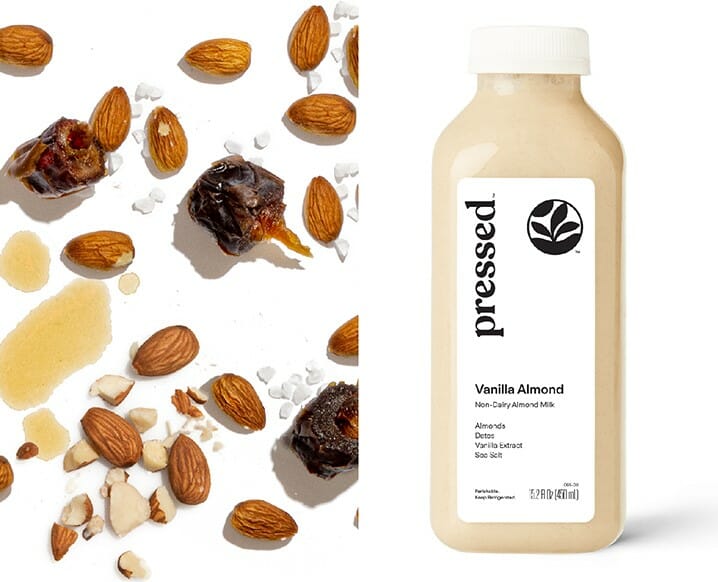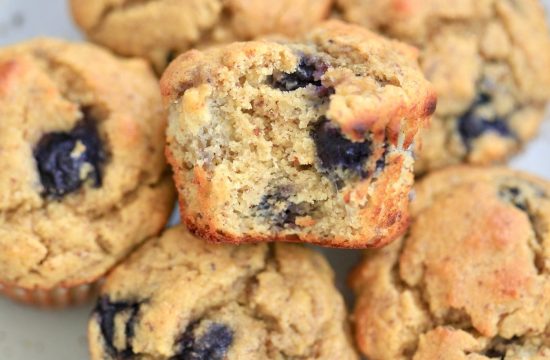
 Max Lugavere is a NYT best-selling author, science journalist and top podcast host of The Genius Life. His book Genius Foods is a must, and we love his recipe book Genius Kitchen.
Max Lugavere is a NYT best-selling author, science journalist and top podcast host of The Genius Life. His book Genius Foods is a must, and we love his recipe book Genius Kitchen.
We know Max has his finger on the pulse when it comes to emerging research on brain health and general wellness, so we asked him to share the most notable studies he’s been paying attention to lately…
5 Health Studies Going On Now (And What They’ll Mean For The Future)
Is a 4-day work week a healthier work week? How do 24h movement behaviors change during and after vacation? A cohort study | It’s no surprise that the COVID-19 pandemic has changed the work landscape indefinitely. It’s important for a lot of people to live a balanced and healthy work life balance. Health researchers from Australia found that many are “all in” on the idea of a four-day work week and a long weekend. This new empirical research shows that extra time off can be beneficial for one’s health. By evaluating variations in daily activities prior to, during, and after vacation, the researchers discovered that individuals exhibit more energetic and healthy habits when they are on vacation, even if it’s just a brief three-day break. If research continues to look at how our habits change when we’re away from our usual routines, it could have significant changes in the ways we work, live and play.
Can the Mediterranean diet reduce dementia risk? Mediterranean diet adherence is associated with lower dementia risk, independent of genetic predisposition: findings from the UK Biobank prospective cohort study | In my upcoming documentary, Little Empty Boxes, I openly discuss my mother’s battle with dementia, which has fueled my passion for sharing the latest research in health and nutrition to better our well-being. A recent study published in March of this year, found that the Mediterranean diet, a diet that is rich in seafood, fruit, vegetables, nuts and olive oil, may lower the risk of dementia. An analysis of data from more than 60,000 seniors revealed that choosing to follow a Mediterranean diet reduces a person’s likelihood of developing dementia by nearly one quarter. The new research adds to the mounting evidence that diet can impact brain health overall, in particular the risk of dementia—even in people who are at a higher risk because of their genes.

Do almonds increase gut-healthy butrate? The impact of almonds and almond processing on gastrointestinal physiology, luminal microbiology, and gastrointestinal symptoms: a randomized controlled trial and mastication study | Protein and fiber are both nutrients I always look for to have in my snacks. A research study, funded by the Almond Board of California, found that eating almonds may benefit some gut microbiota functionality. This clinical research found that consuming this nut significantly increased butyrate, a specific microbiota byproduct. Butyrate has been shown to be associated with several health benefits like improved sleep quality and fighting inflammation and reduced risk of colon cancer. Research like this that looks at specific areas of our gut microbiota, like butyrate, helps inform consumers on all the different aspects of our gut health.
can daily walks support brain health? Large-scale network connectivity and cognitive function changes after exercise training in older adults with intact cognition and mild cognitive impairment | Walking is powerful! In a new study, 12 weeks of walking for 30 minutes, four times a week was found to improve memory function and neural connectivity in both cognitively healthy older adults and those with cognitive decline. The exercise involved walking at a pace tailored to their heart rate, with a brisk walking speed typically around 3 miles per hour. The results revealed that the participants, even individuals with cognitive decline, demonstrated improved performance on memory tests compared to their sedentary counterparts. Not only that, but brain scans revealed stronger neural connections, which is a promising indicator of enhanced brain function. This study continues to show how getting physical movement has powerful impacts to mental and physical health.
can nuts help us better recover from exercise? Almond intake alters the acute plasma dihydroxy-octadecenoic acid (DiHOME) response to eccentric exercise | To me, being active and doing what you can to help strengthen and take care of your body is important. But one under-appreciated aspect of physical health is recovery. This new study, funded by the Almond Board of California, showed how snacking on almonds helped reduce fatigue and tension during muscle recovery, compared to a calorie-matched cereal bar. New studies like this one show that consuming almonds can be the newest addition to sports nutrition trends to help people recover better from exercise and experience a better mood state.
Read Next: Can These Factors Reduce Dementia Risk By 90%? Two Top Docs Weigh In

Share the post “5 Notable Health Studies Going On Now (And What They’ll Mean For The Future)”











